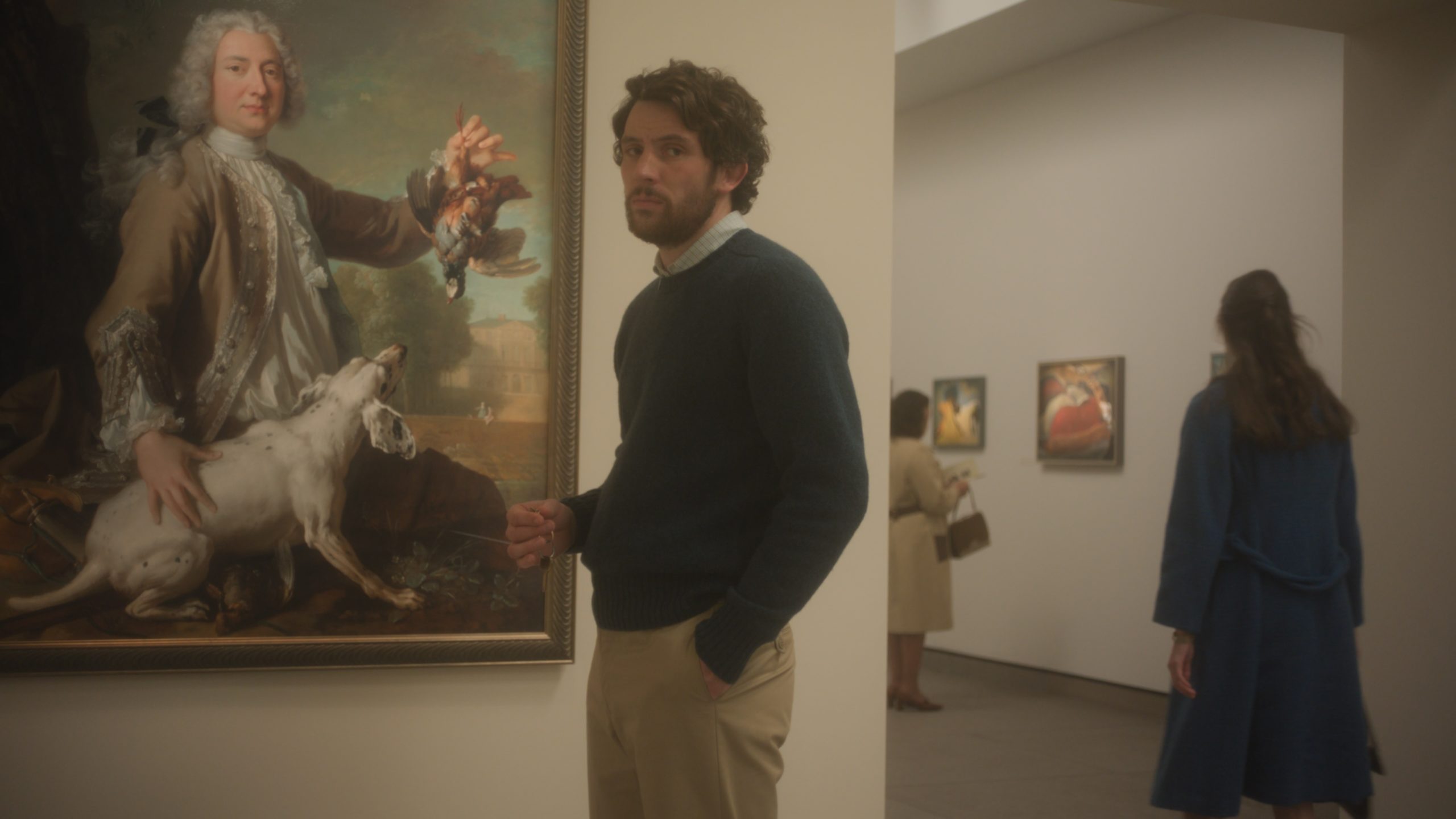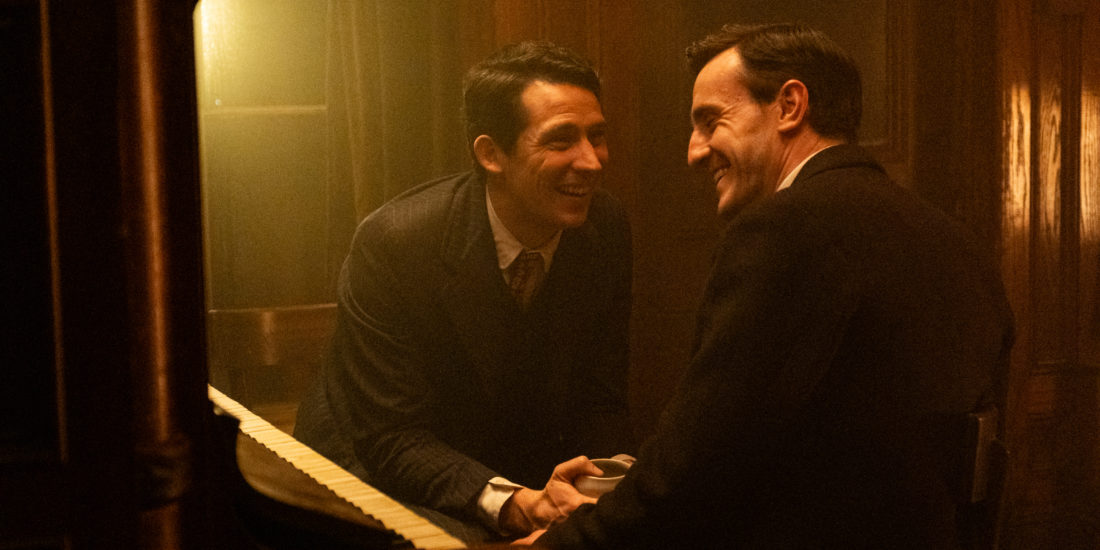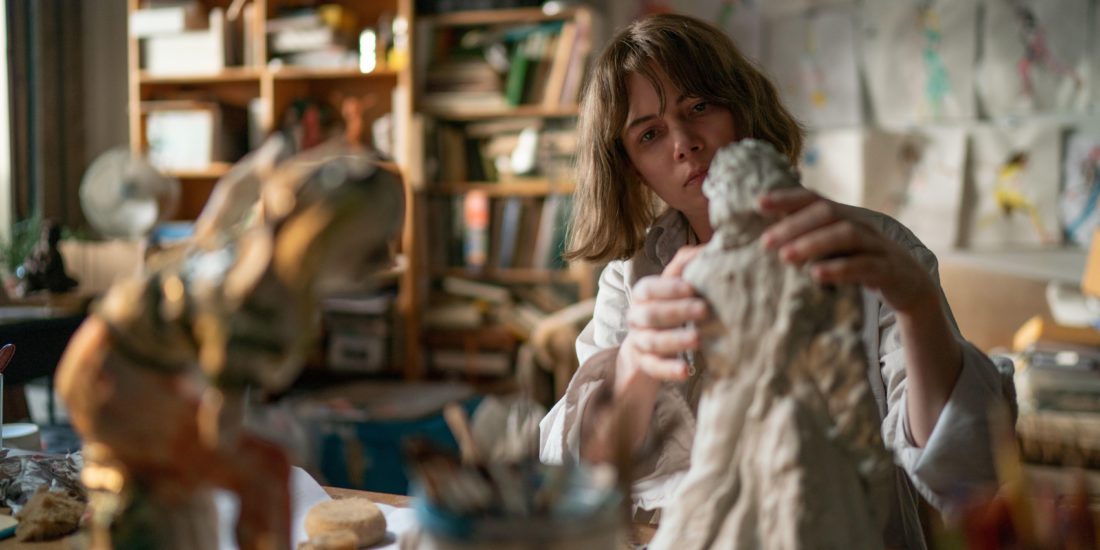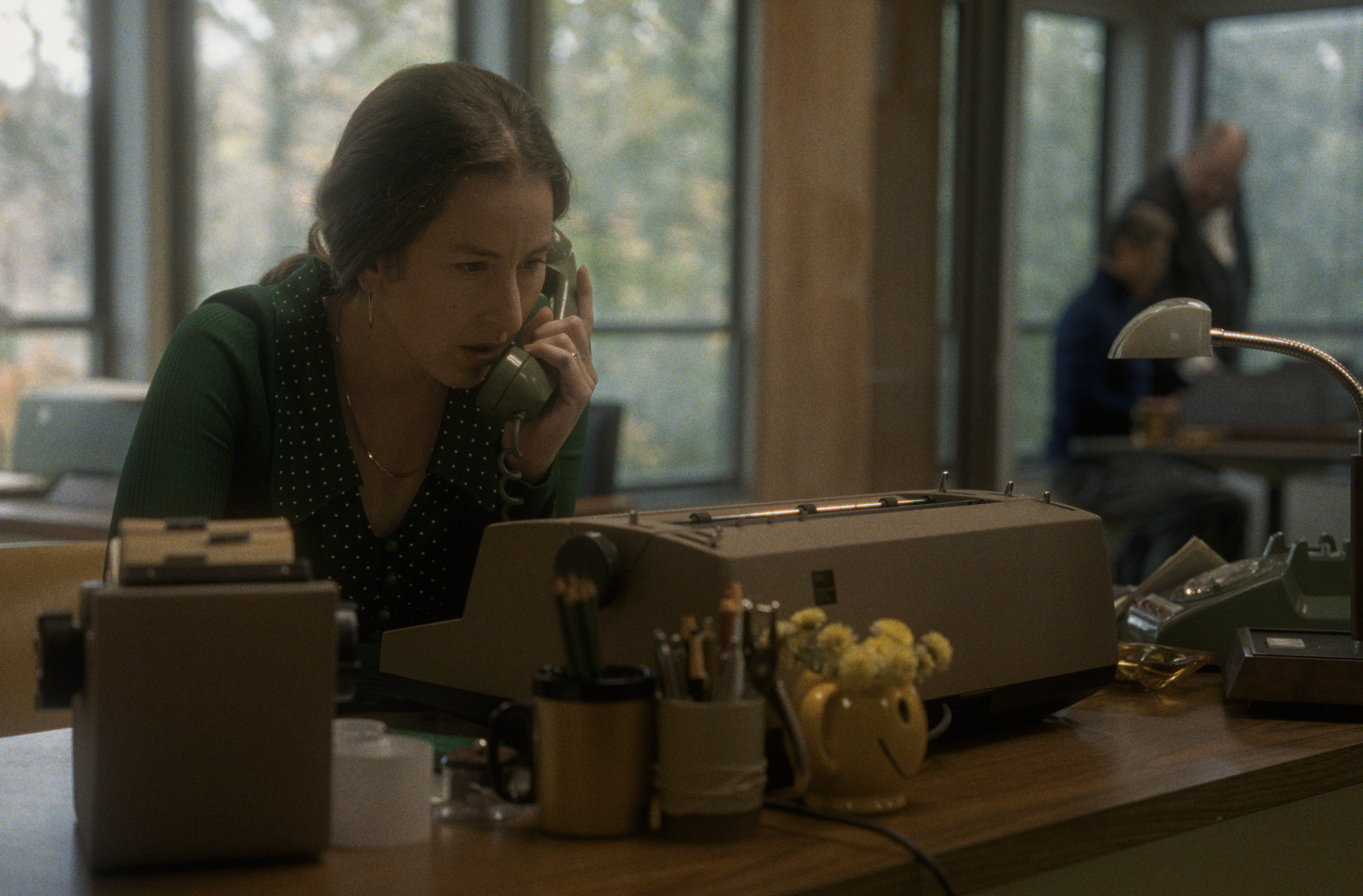
If you leave an American alone, he will become a loner and a criminal. Americans have to make sure they have a real society around them so that they can remain sane because, at bottom, it’s a very psychotic society… They are too close to serial killers to accept the fact that this is what America is about. The only real American is a loner, someone who doesn’t talk to his neighbor. Someone who takes a gun and… That’s the individual that Americans are afraid of becoming, because that’s what the real American is. All the others are soft versions, ready to explode. — Sylvère Lotringer
It’s family day at the Framingham art museum: Mom (Terri, played by Alana Haim), dad (James, played by Josh O’Connor), chatty, precocious son Carl (Sterling Thompson), and his much quieter brother Tommy (Jasper Thompson). So far, so good, except dad is casing the joint. So begins Kelly Reichardt’s haunting new feature The Mastermind. Ostensibly a “heist film,” the filmmaker moves fairly quickly through the logistics of James’s theft of four Arthur Dove paintings. Carried out by a pair of accomplices (Eli Gelb and Javion Allen) who nearly bungle the job while James waits behind the wheel of the getaway car, the problems of this “mastermind”—whose main gig is freelance cabinet making—only compound once the artworks are in his possession.
As Reichardt has said, “it’s an aftermath film, an unraveling film,” but we might consider for a moment how we got here. Set in the early 1970s in Massachusetts and points west, Reichardt’s America—apprehensive and self-obsessed (as always), “a country the right age to have been born in and the wrong age to live in” (Stein)—is an exhausted empire, disillusioned (or relieved) by the unrealized promise of the Sixties, mired in the Vietnam War and socioeconomic upheaval at home. Showcasing a “modern jazz” score by Rob Mazurek that matches the fragmentation of James’s outlook and method, the film is an ode to the hapless. With his marriage to Terri effectively over, James perseveres in a fog of schemes and lies and runaway dreams.
About two-thirds of the way into the film, The Mastermind irrevocably shifts to the road. In an often wordless sequence of remarkable scenes that alternate between the heart-wrenching and the cryptic, Reichardt channels other roads taken (by William Eggleston, by Robert Frank and Rudy Wurlitzer) yet remains entirely captivating in her artistry and prescience. In the midst of our benign nostalgia for the analog 1970s, the earlier era’s government corruption and underground networks of resistance somehow crash headlong into our dire present, one national emergency after another.
The Mastermind is now streaming on Mubi. See links below for details.
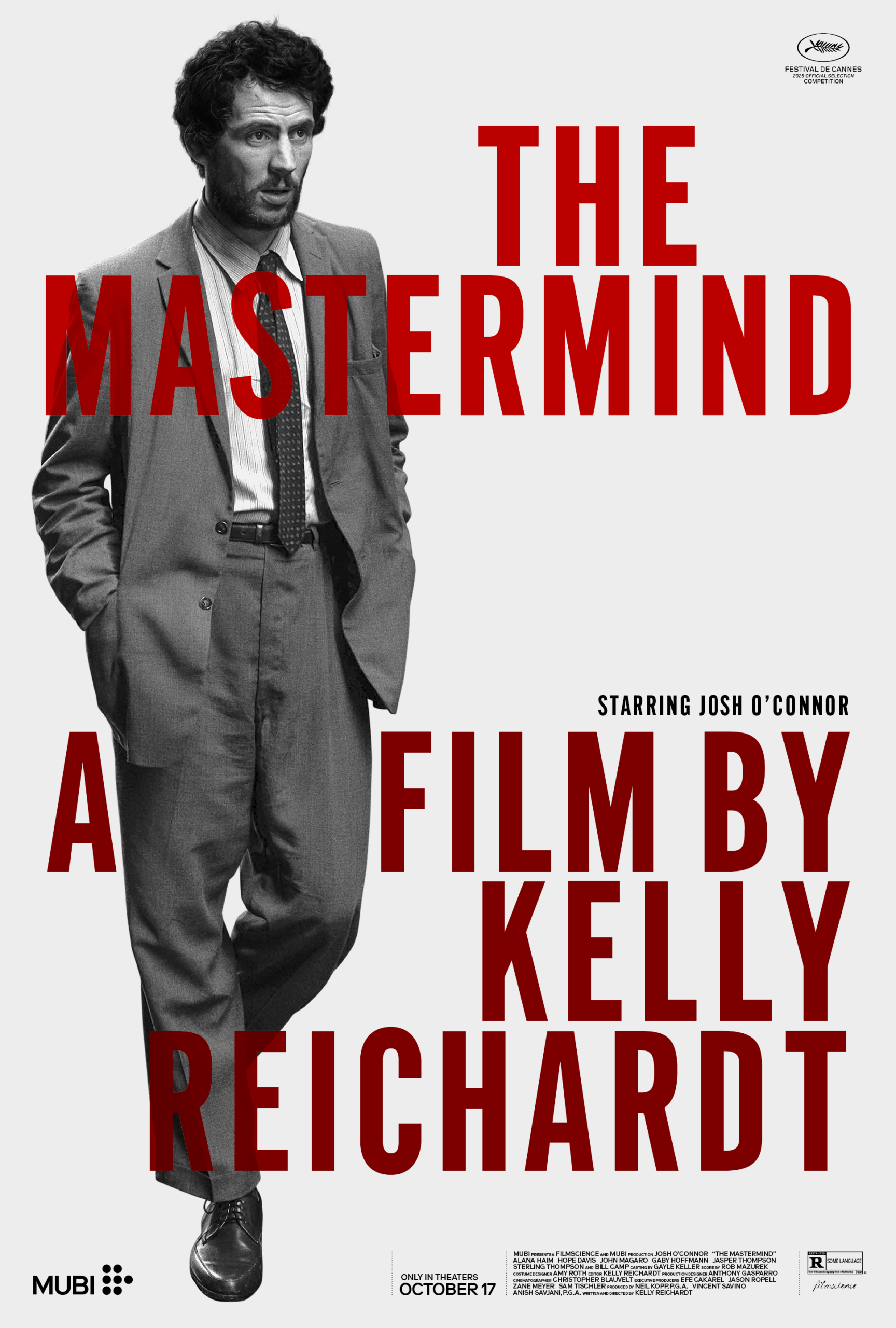
THE MASTERMIND
Written and directed by Kelly Reichardt
Now streaming on Mubi:
In theaters, Fall 2025:
AMC Century City
10250 Santa Monica Boulevard, Los Angeles
amctheatres.com/the-mastermind
AMC Burbank 16
125 East Palm Avenue, downtown Burbank
amctheatres.com/the-mastermind
Sylvère Lotringer quote: “The Importance of Being Unfinished: Sylvère Lotringer in Conversation with Dorothée Perret,” PARIS LA 10 (Fall 2013).
Gertrude Stein quote: Transitions, 1914.
From MUBI Editions:
The Mastermind is a box set of four unique booklets documenting the making of Reichardt’s 2025 film. Through personal reflections, photographs, and fragments of memory and ephemera, Reichardt and the project’s collaborators reveal the skill, care, and camaraderie that define their filmmaking process.
The book also features a critical essay by Lucy Sante and an exploration of artist Arthur Dove by Alec MacKaye of the Phillips Collection. Together with exclusive production images and striking reproductions of Dove’s work, these texts crystallize the world of the film as well as the meticulous craft behind its period setting.
Housed in a beautifully designed slipcase, The Mastermind is an intimate record of the film’s creation and an evocative capsule of time and place.
mubieditions.com/products/the-mastermind
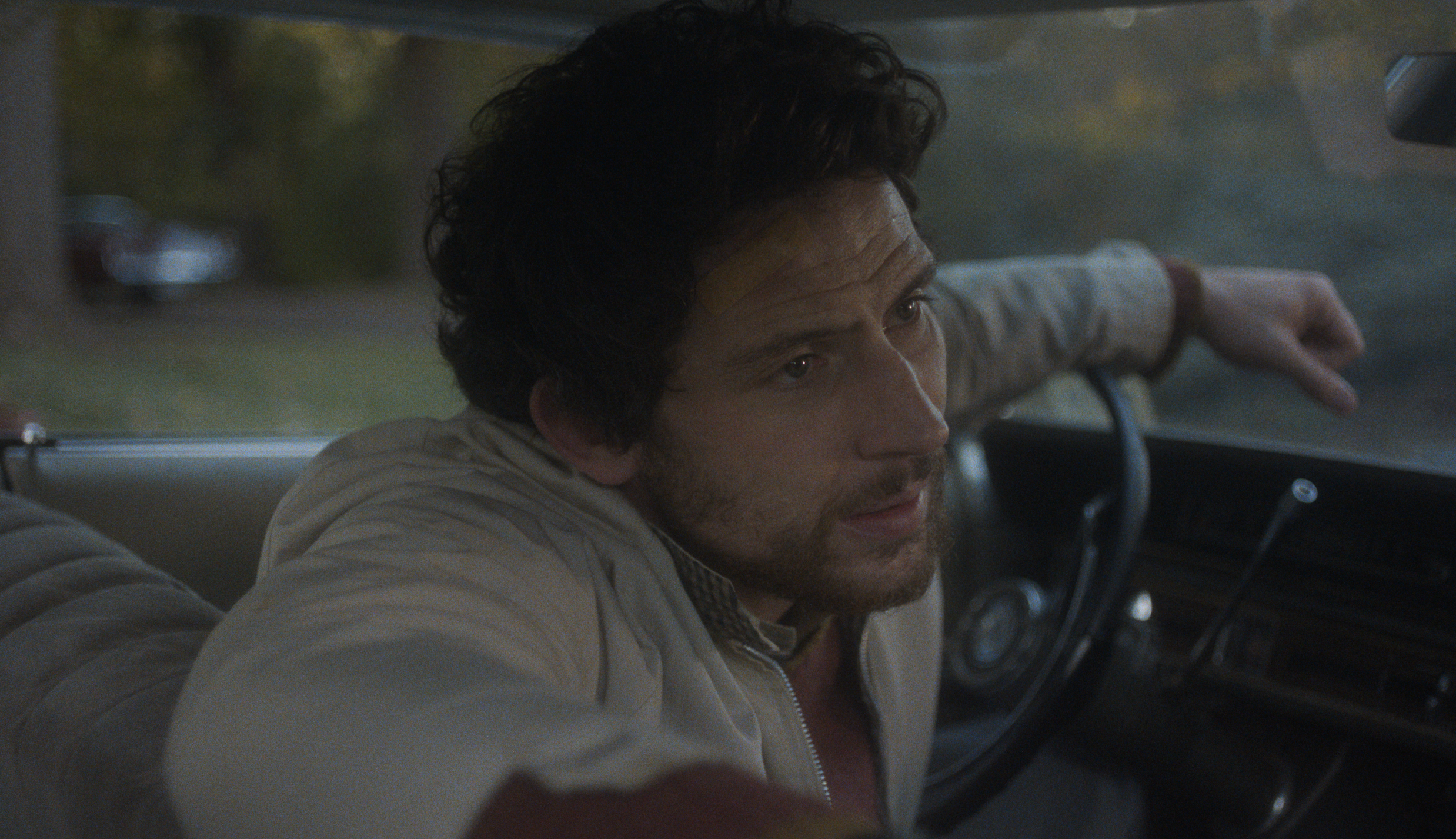
Kelly Reichardt, The Mastermind (2025), from top: Josh O’Connor; Alana Haim (photo by Ryan Sweeney); The Mastermind poster; O’Connor.
Stills and poster courtesy and © 2025 Mastermind Movie, Inc. and Mubi.

